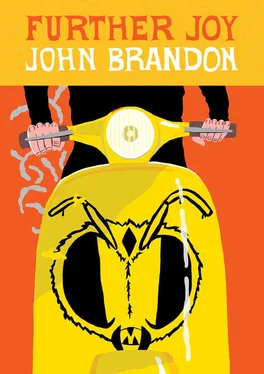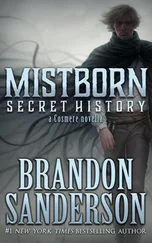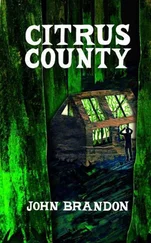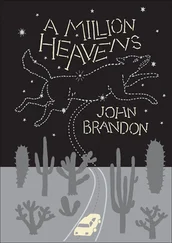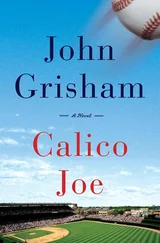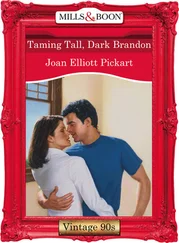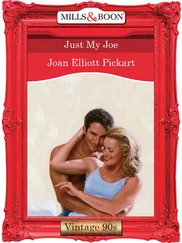He sat silent in the spare room for a long time. His back hurt but he ignored it. He was thinking a hundred miles an hour. Here were plain facts, seven in number. Why seven? So neutral, seeming not to care about Mitchell a bit. They had no ill will in them, no kindness. These brains weren’t possible, yet he felt he’d been awaiting them or something like them for some time. A memory came to him of those summer afternoons when he would steal an hour from the fun everyone else was having and sit by himself in a culvert or under the public dock at the river, taking a rest from the blustery cheer of his neighborhood. He remembered being hidden in the cool. He remembered the tirades of the birds above, who weren’t used to trespassers in their out-of-the-way dominions.
It turned out they were moving, the brains, just very slowly. He had to close his eyes for several minutes in order to mark their advancement across the hardwood. Mitchell gathered the courage to crouch down and touch one with his thumb, feeling ludicrous and fearful, and it didn’t seem to bother the brain a bit. The brain felt like a snake, smooth and muscled and dense. The brains smelled like wet peanut shells. They produced a dull hum that never grew louder.
Mitchell put on his sneakers and locked his door and drove slower than the speed limit in the approximate direction of town. The sky was a faultless, inscrutable blue. In a featureless area of the desert he passed a vagrant wearing a beret. The man was limping down the roadside with no hope of catching a ride, and after Mitchell had passed him, the man turned around and started walking the other direction, doubling back toward wherever he’d come from. Mitchell watched the man until he disappeared from the rearview. He passed a clinic for animals, with a thirty-foot ironwood in its front yard and an array of colorful garbage bins lining the drive. He passed some low, isolated settlements, and then a vast car dealership loomed up, festooned with pennants, some of the vehicles displayed on ramps, some of them with their doors thrown open in welcome. Mitchell had reached the outskirts. He pulled into the near-empty parking lot of a movie theater. He went in and selected a movie and sat in the dark. Passive jazz music played over the speakers. Mitchell wasn’t doing great — people who were doing great, who were doing fantastic at the moment, didn’t see vital organs living in their spare rooms. But maybe he wasn’t doing that badly either. Maybe no worse than a lot of people. He was unemployed, but that was common nowadays. He’d probably wasted the prime of his life, but who didn’t? Aside from athletes and rock stars, who used their primes proudly? Mitchell remembered certain weekends with Bet, how he’d felt pleasantly disconnected from everything, how the two of them could be their own slow little city, losing whole days in naps, getting the world’s bad news long after the worst was already over, insulated from the failing economy by Bet’s money.
He’d forgotten to get any candy or popcorn, but now the trailers had begun. He hadn’t been in a movie theater in a couple of years. Bet had come up with the idea of doing all the worst things they could think of in a single day, once — they’d had breakfast in an Arby’s and attended a boat show, listened to right-wing radio and read about Jessica Simpson online for a full hour. In the evening, they’d gone to see whatever Vin Diesel carchase movie had been playing, filing in with packs of teenagers. Toward the climax of the film, Bet had started making out with Mitchell, showily tongue-kissing him as nearby adolescents stared. He could remember other trips, before that — times when he himself was in high school, driving into Chattanooga from his sleepy town and slumping alone in an art house matinee, feeling tragic and uncommon, then drifting outside afterward into the broad daylight, the world exactly as he’d left it.
The movie Mitchell had bought a ticket for was about a high-end catering company in Los Angeles. It was a comedy where all the characters sabotage each other, but at the end a guy gets fired and all his rival coworkers quit the company in solidarity. When Mitchell walked outside his hands were cold and bloodless, and he stood in the parking lot for several minutes holding them out in the sun. He could tell the brains were still in his condo; his mind felt the same as when he’d entered the theater. They were still there, and Mitchell didn’t want to drive home and see them.
He headed up the frontage road, the shopping strips growing larger and cleaner, until a proper mall materialized. Being around people might help, he thought. He strolled up and down the vaulted corridors, both floors, at an even pace, considering the stores, considering the young couples and old men, smelling the pretzels and Chinese food. He’d bought a suit in the last mall he’d visited, in Sacramento; he’d gone to a department store with Bet because an uncle of hers was getting married.
He sat down on a bench in front of a fountain, across from a straight-backed kindergarten-age boy with no parents to be seen. The mall was not helping. He knew when he got back to his condo he would see the brains. Mitchell couldn’t see his way to a reasonable outlook on this fact. Sometimes in life, denial was the sound policy; sometimes there was nothing to do but continue on with blinders. But how reasonable was it to contradict your own senses, to start arguing with yourself about what was sitting right in front of you?
Mitchell drove across the Eastern basin as slowly as the other cars would allow, and didn’t return home until past dark. He didn’t stall, after that. He strode over and looked in the spare room and they were indeed still in there, unchanged, unconcerned. He came back to the living room and sat on the sofa. His hands were still chilled but his back was soaked. He’d been sweating all day, he gathered. He pulled off his shirt and draped it over the arm of the sofa. He thought there was a chance the brains would disappear at midnight, a one-day affliction. That was something to hope for. If they stayed past midnight, into tomorrow, then there was no telling how long they’d be in there. But then, midnight wasn’t even real. Midnight was a contrivance. Mitchell was tired and he wasn’t going to have any correct thoughts. He hadn’t had any all day.
The next morning the brains were no less real. Mitchell forced himself to drink some water, then drove in the opposite direction he’d driven the day before, out into the empty wilderness. The sky was hazy, an adulterated white. He’d never come out here before. The road was straight as a high wire. Snatches from the wee hours of the previous night came to Mitchell, glimpses from his troubled sleep. He’d had a dream in which he told someone about the brains — he couldn’t recall whom now, but knew it wouldn’t have been Bet — and when he’d awakened and realized it was only a dream, that no one knew what was going on with him, he hadn’t been sure how to feel. He’d known relief wasn’t the appropriate emotion.
He came to a hairpin curve that made him slow way down, and it seemed as good a place as any to pull off. He turned off his engine, picked his way out through the spiny shrubs, and sat on a flat warm rock. He could hardly open his eyes against the glare. He was out here with the lizards now, the hardscrabble reptiles, all the way off the grid. Solitude was something he’d craved and romanticized most of his life, but maybe he was out of practice at it. He heard birds but he didn’t know where they were.
The ideal resolution to what was happening was to let it run its course. People had put up with a lot worse. He could manage for a few days, even longer if necessary. The brains would leave when it was time for them to leave.
Читать дальше
